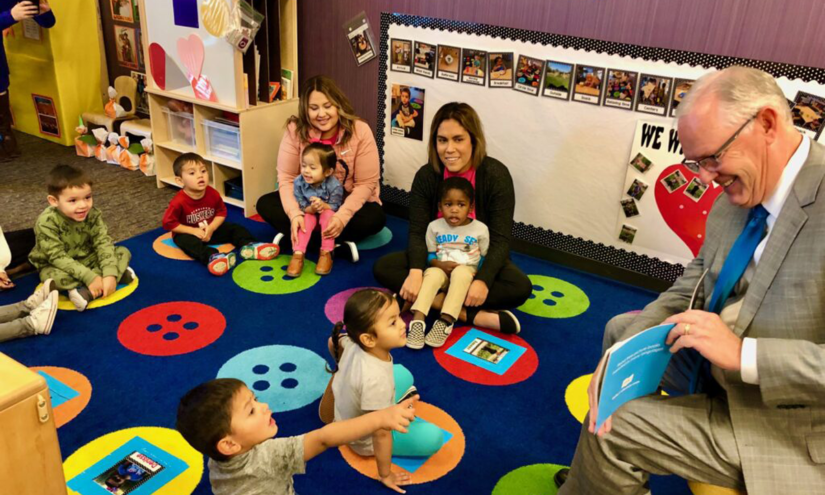During this summer, a team of students from MIT embarked on a journey to the sou …
Nebraska Allocates $2 Million to Enhance Preschool Reading, Eradicate Book Scarcity
Jennifer Livingstone

OMAHA — In an effort to eradicate the problem of “book deserts” in Nebraska, the State Department of Education has allocated $2 million to provide over half a million books to households with young children in Nebraska.
The Nebraska Growing Readers initiative was launched on Monday with the distribution of a set of books to Educare of Omaha at Indian Hill, one of 18 child care providers in urban and rural areas that will assist in delivering the books to families.
During the stop in South Omaha, a group of education advocates interacted with the target audience, which comprised pre-kindergarteners. Education Commissioner Brian Maher also took a few minutes to read a book to a group of 3-year-olds.
“Reading is the foundation of everything we do,” Maher stated.
“Basically, it comes down to, ‘How developed is your vocabulary?’ Reading and exposure to language are extremely beneficial…so that you can read, be literate, and then proceed to think critically.”
Mary Jo Pankoke, President and CEO of Nebraska Children and Families Foundation, and Suzanne Pillen, wife of Governor Jim Pillen, who has been visiting classrooms and working on promoting literacy, were among those accompanying Maher.
The foundation, along with the Statewide Family Engagement Center and Unite for Literacy, is partnering in this project. A spokesperson for the state education department explained that the $2 million comes from the department’s allocation of Elementary and Secondary School Emergency Relief (ESSER) funds, which are related to the pandemic.
Pankoke stated that one of the objectives is to engage parents and family members in daily reading with their children.
Organizers stated that the available books mainly consist of pictures and cover a range of topics, from family to animals. They are also available in Spanish and other languages upon request.
The initial phase is aimed at reaching 16,000 children, 12,000 households, and 1,000 early childhood providers. Organizers hope to provide a series of books to each household.
Each distribution site will receive technical assistance, and the project will use data and interactive mapping tools to track progress and provide feedback to stakeholders and child care providers.
The ultimate goal is to transform Nebraska into one of the most extensive “book gardens” in the country and eliminate book deserts.
According to a map by Unite for Literacy, it is estimated that 32% of homes in Nebraska have more than 100 books. This is slightly higher than the national average of 31%. Having more than 100 books is considered an important indicator and predictor of academic success.

